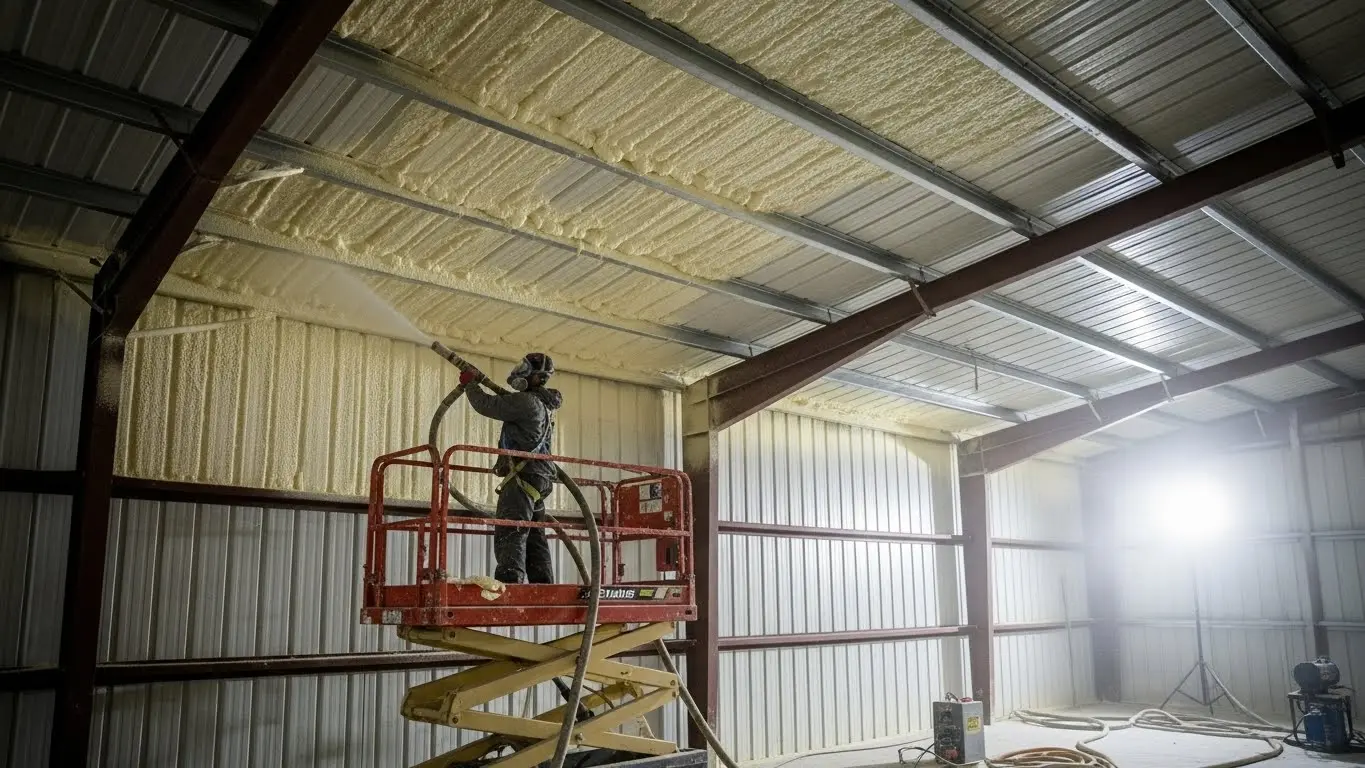If you live in New York City or New Jersey, you know just how unpredictable the seasons can be. One day it’s snowing, the next it’s a scorcher. That kind of climate rollercoaster puts your home’s insulation to the test. And if you’re thinking about investing in spray foam insulation, you probably have one big question on your mind: How long does spray foam insulation last?
Let’s explore the real-life longevity of spray foam insulation in the unique urban landscape of NYC and NJ, and what that means for homeowners, property managers, and developers alike.
Spray Foam Insulation: What Makes It Different?
Spray foam insulation isn’t your average pink roll of fiberglass. It’s a high-performance material that expands on contact, sealing gaps, cracks, and even the tiniest air leaks. There are two main types: open-cell and closed-cell. Open-cell foam is softer and better for soundproofing, while closed-cell foam is denser and provides a higher R-value (which means better insulation).
What makes spray foam insulation especially appealing in NYC and NJ is its ability to conform to irregular spaces. Whether it’s a 100-year-old brownstone in Brooklyn or a sleek Manhattan high-rise, spray foam fits right in, literally.
Also Read: What Is Spray Foam Insulation and How Does It Work?
The Lifespan of Spray Foam Insulation
Here’s the good news: when properly installed, spray foam insulation can last over 30 years. In many cases, it outlives the very structure it’s installed in. Unlike fiberglass or cellulose, spray foam doesn’t settle, sag, or degrade easily over time.
That said, several factors influence how long it truly lasts in NYC and NJ conditions:
Installation Quality
This can’t be overstated. The effectiveness and longevity of spray foam largely depend on how well it’s installed. A trained, certified installer will ensure even application, correct thickness, and proper curing, all of which contribute to a longer lifespan.
Building Type and Usage
The type of building can affect wear and tear. For instance, spray foam in a busy commercial space with frequent renovations might need attention sooner than in a stable residential setting.
Moisture and Ventilation
NYC and NJ have their fair share of humidity and storms. If moisture seeps into your walls due to poor building maintenance, even spray foam can be compromised. However, closed-cell foam resists water infiltration much better than most materials.
UV Exposure
If exposed directly to sunlight, spray foam can degrade. But in most insulation applications, like inside walls, attics, and crawl spaces, this isn’t a major concern. Still, any exposed foam should be protected with a coating or barrier.
How the Environment Affects Insulation Longevity
Urban environments are tough on buildings. Think pollution, vibrations from subways, temperature swings, and aging infrastructure. Fortunately, spray foam insulation is resilient.
- Temperature Swings: NYC and NJ winters dip below freezing, and summers can hit triple digits. Spray foam holds its R-value well across a wide temperature range.
- Noise Pollution: Living next to an avenue, bridge, or construction zone? Open-cell spray foam doubles as a sound barrier.
- Air Quality: Spray foam acts as an air sealant, helping to block allergens, smog, and outside pollutants from entering your space.
This means that in NYC and NJ, spray foam not only lasts but continues to perform where traditional insulation materials often fail.
Maintenance and Inspections: What Should You Know?
While spray foam insulation is low-maintenance, it doesn’t mean you should ignore it. Periodic inspections, especially during major renovations or after water damage—can catch any potential issues early.
Look out for:
- Water stains or leaks around insulated areas
- Pest infestations, which can sometimes burrow into compromised foam
- Structural changes that may have altered the foam’s coverage or exposed it to sunlight
A qualified insulation contractor can assess these and determine if any touch-ups or reapplications are necessary. Most well-installed spray foam systems won’t need intervention for decades.
Cost vs. Longevity: Is It Worth It in NYC & NJ?
Let’s address the elephant in the room. Yes, spray foam insulation costs more upfront compared to fiberglass or cellulose. But here’s the kicker: it’s an investment that pays off over time.
In a city where energy bills are high and HVAC systems work overtime, reducing heat loss can mean significant savings. With a lifespan of 30+ years and minimal degradation, spray foam insulation pays for itself through:
- Lower energy bills
- Fewer repairs and replacements
- Increased property value
- Improved indoor comfort and air quality
Considering these benefits, many NYC and NJ homeowners and property developers see spray foam as a long-term solution rather than a one-time upgrade.
Choosing the Right Installer in NYC & NJ
Not all contractors are created equal. If you want your insulation to last, choose an installer with experience in urban settings. Ask questions like:
- How many NYC properties have you worked on?
- Are you certified for spray foam installation?
- What kind of warranty do you offer?
A quality installation sets the stage for decades of high performance. Don’t cut corners here.
Get The Best Spray Foam Insulation Installed At Your Property
Looking to upgrade your property’s energy efficiency? Contact Foam Insulation Solution for the best spray foam insulation installation. Our team delivers the best service using premium materials that seal every gap, reduce energy bills, and enhance indoor comfort year-round. Whether it’s a home, commercial space, or new construction, we tailor each project to meet your unique needs.
With years of experience and a reputation for excellence, Foam Insulation Solution ensures your investment pays off for decades. Contact us today for a free consultation and expert installation.







